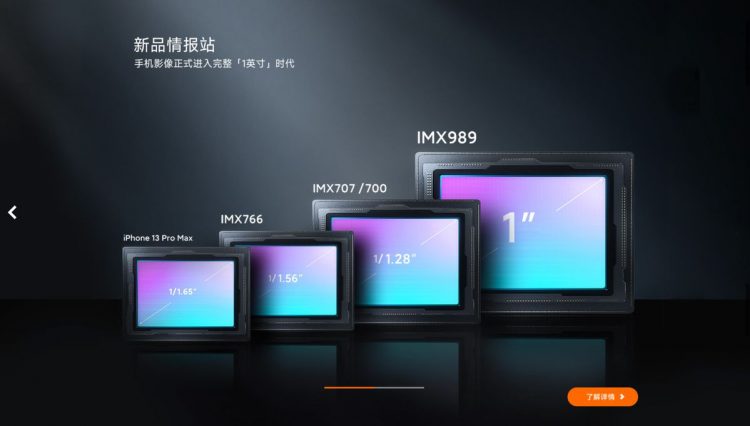Big-sensor cameras are a bit of a white whale for smartphone imaging engineers. Even the most capable smartphone cameras use relatively puny sensors, and efforts to bring bigger sensors to the mobile form factor have been impractical, niche, or never really materialized. Xiaomi appears to be the latest company to attempt to capture the elusive concept with its upcoming 12S Ultra flagship.
According to a post on Weibo spotted by Android Authority, the phone will include a 1-inch-type sensor co-developed with Sony. That’s about 1.7 times more surface area than the 1/1.33-inch-type sensor in the Samsung Galaxy S22 Ultra’s main camera module. It’s also the same size sensor that’s in Sony’s $1300 Cyber-shot RX100 VII that’s more or less the compact camera’s ultimate, final-boss form.
It’s a big deal because nobody’s really been able to conquer the 1-inch smartphone camera, including Sony: its Xperia Pro-I includes a sensor of that size but only uses part of it. The bigger sensor, bigger pixels, and bigger optics attached would offer significant image quality benefits over smaller, traditional smartphone cameras, especially in low light.
The size difference between 1” and smaller sensor formats is significant.
Image: Xiaomi
Xiaomi isn’t stopping at the sensor, either: the company called in Leica to collaborate, too, though it’s far from Leica’s first smartphone camera project. To put it bluntly, though, traditional camera makers’ collaborations with smartphone OEMs haven’t resulted in much more than a badge on the camera and a lot of marketing bluster. In this case, at least, Xiaomi is putting in the effort — and the money — in co-developing new hardware. Xiaomi CEO Lei Jun says that Xiaomi and Sony split the $15 million cost of developing the new sensor.
Unfortunately, the 12S Ultra is highly unlikely to ever be sold in the US since it’s extremely difficult for Chinese brands to gain a foothold in this market. In any case, it won’t be long before the phone is fully unveiled: Xiaomi says it will present the 12S Ultra to the world on July 4th at 7PM China Standard Time.
Source by www.theverge.com


























